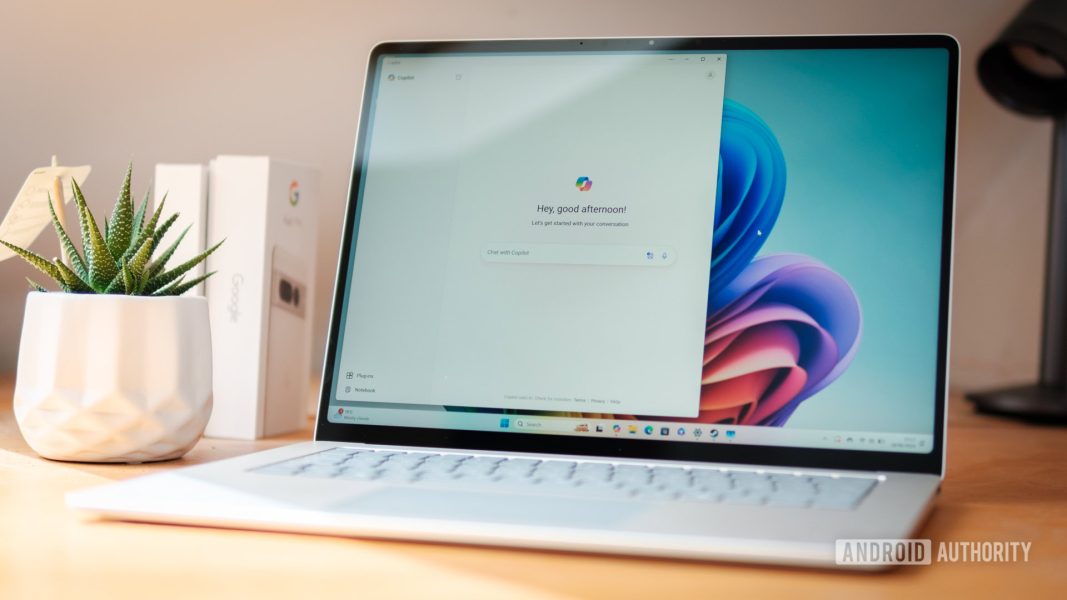Donald Trump doubles down on Greenland, Canada and tackles Gaza as first week in office comes end – BBC.com

Nearly 1,000 immigration arrests were carried out on Sunday as US President Donald Trump’s promise of mass deportations ramps upThe sanctuary city of Chicago has been a focus of the raids, with Immigration and Customs Enforcement also targeting areas in Miami and New JerseyThe issue of immigration also caused a spat between Trump and the Colombian government, after two US military flights carrying deported migrants were barred from landing The Trump administration threatened to slap tariffs on Colombian exports to the US, and the Colombian government later agreed to let the planes land This video can not be playedWatch: Almost everything Trump did in his whirlwind first weekEdited by Brandon Livesay in New YorkPete Hegseth, Trump’s defence secretary, has spoken with media outside the Pentagon ahead of his first day on the job.He says more executive orders from the president are coming today, and says they will involve “removing DEI” inside the Pentagon, and reinstating troops who were pushed out because of Covid mandates. He also says there will be an update on installing an Iron Dome for America – that’s the air defence system Israel has repeatedly used to counter missile and drone attacks.DEI refers to diversity, equity and inclusion (DEI). President Trump has banned such programmes throughout the government. Hegseth also spoke of the Pentagon’s involvement in Trump’s immgration crackdown. He says the defence force will “absolutely contiinue” to support mass deportation efforts.The Trump administration is claiming a victory over the Colombian government after a back-and-forth over deportation flights. Here’s how it all went down:Bernd Debusmann JrReporting from the White HouseGood morning from the White House, where we’re so far having a very quiet, cold morning while President Trump is away. He’s currently in Florida, where he flew on Saturday after a whirlwind trip to North Carolina and California, where he surveyed the destruction from deadly wildfires that devastated several communities in the Los Angeles area earlier this month. Later today, he’s expected to meet with Republican lawmakers at his property in Doral, Florida.He’s likely to make public remarks in the afternoon. He’s due back at the White House tonight. Stay with us for more updates. John SudworthNorth America CorrespondentThere’s been a lot of press focus on President Trump’s
promise of high-profile raids and deportations of undocumented immigrants
accused of serious crimes. As the TV footage of Immigration and Customs
Enforcement (ICE) officials handcuffing suspects begins to emerge on the US
networks, the political messaging behind it suggests that this marks a new
chapter of tough executive action. In reality, all administrations
have continued to carry out deportations, external
of immigrants embroiled in the criminal justice system, including the last one.In Chicago, one of the cities singled out as a primary
target of Trump-era action, an interesting debate has emerged. It is a
so-called sanctuary city, those places where Democratic politicians have passed
restrictions preventing – to various degrees – their local police forces from
disclosing or sharing the immigration status of suspects or convicts with ICE. Those policies have long made such cities a target of Trump’s ire.In the face of the threats of targeted action, one Democratic
member of Chicago’s legislature has proposed a compromise. Alderman Raymond
Lopez tabled an amendment that would water-down the sanctuary law there,
allowing the Chicago Police Department to work with federal authorities in
cases where undocumented immigrants have been arrested or convicted of the most
serious crimes, including human trafficking, drug offences and sexual crimes
involving minors. Ana FaguyUS reporterWe have some more details for you on the nationwide immigration crackdown which resulted in the arrest of 956 people.It is the most since Donald Trump returned to power, according to Immigration and Customs Enforcement (ICE).A number of federal agencies with newly expanded detention powers were involved in the raids in a number of cities including Chicago, Newark, New Jersey, and Miami.Since taking office, Trump has carried out 21 executive actions to overhaul the US immigration system.An unnamed man told CBS News, external, the BBC’s US news partner, that ICE took his wife during on the Miami raids this weekend.”It’s despicable what they’re doing right now,” he told CBS. “It’s very embarrassing.”He said his wife was in the process of getting citizenship when ICE arrived: “They just came and they snatched her.”Last week, Newark Mayor Ras Barka said undocumented residents and citizens – including one military veteran – were detained without a warrant during an ICE raid of a local business.Brandon LivesayReporting from New YorkHello and welcome back to our live coverage of US politics, where the Trump administration is entering its second week.It was a whirlwind first week dominated by President Trump signing executive orders across a broad range of issues.One of the main issues his administration is focused on is immigration. And that’s where we will start today’s coverage.We have learned that there were 956 arrests made on Sunday as part of Trump’s immigration crackdown. His predecessor Joe Biden carried out an average of 311 immigration deportations daily, according to ICE, external, mostly individuals who had committed crimes.Stick with us, we’ll be bringing you the latest updates and analysis on immigration, and all the other talking points on what is sure to be another big day in US politics.It’s been a whirlwind week since Donald Trump returned to the White House, and today was no exception. The Republican president once again made waves with his policy shake-ups at home and abroad – including a major spat with Colombia, a close US ally. Here’s a look at the highlights: We are going to pause our live coverage for now. Here is more on the spat between the US and Colombia, and you can find more information about Trump’s effort to have Gaza’s neighbours take in Palestinians here. Colombian President Gustavo Petro’s spat with Trump is the first with a foreign government since the new American administration began its crack down on immigration.In his first week in office, Trump has signed executive orders declaring a national emergency at the US-Mexico border, instructing the military to “seal the borders”, denying the right to citizenship to the children of migrants either in the US illegally or on temporary visas and reinstating his “Remain in Mexico” policy from his first term. US Immigration authorities announced on Saturday that they had begun “targeted operations today in Chicago”, which had been anticipated since Trump’s return to the White House.Earlier today, we heard from Trump’s “border czar” Tom Homan who said at least 100,000 beds are needed for the deportation of undocumented migrants. He urged Congress to provide the funding to secure the border as soon as possible. Malu CursinoLive reporterColombian President Gustavo Petro’s remarks on respecting the dignity of Colombians came after Brazil’s foreign office (Itamaraty) said its citizens returning on US deportation flights had experienced “degrading treatment”. They said individuals deported to Brazil had had their wrists and ankles handcuffed for the duration of the flight.The “indiscriminate” use of handcuffs and chains violated the terms of agreement between the two countries, Itamaraty said.The flight was administered by the US Immigration and Customs Enforcement (ICE), Brazil’s foreign office said.The BBC reached out to the Department of Homeland Security for comment.In an effort to stave off the sweeping sanctions and tariffs from the Trump administration, the Colombian government has offered to arrange the return of migrants using their presidential plane, a senior administration official told CBS News, the BBC’s US partner. But the offer is not enough to stop the White House from taking action, the official said, adding negotiations were still ongoing. The White House is currently preparing documents for President Trump’s signature so the retaliatory actions can be implemented this evening. Ione WellsSouth America correspondentThis is now not just a war of trade, but a war of words.It’s no secret that Colombia’s President Petro doesn’t like Donald Trump – he’s heavily criticised his policies on migration and the environment in the past. That just ratcheted up. Petro has today said Trump would “wipe out the human species because of greed” and accused Trump of considering Colombians an “inferior race”.He goes on to say that he is “stubborn” and that while Trump can try to “carry out a coup” with “economic strength and arrogance”, he will, in short, fight back.Not only does Petro appear to threaten retaliatory tariffs, but most significantly he says: “From today on, Colombia is open to the entire world, with open arms.”A woman walks in front of Colombia’s consulate in New York, USWhile Trump is unlikely to take threats from Colombia, this is something that should worry a US president who wants to tackle migration.Currently, tens of thousands of migrants from around the world – facilitated by criminal gangs – travel through Colombia every year to reach North America through the treacherous Darien Gap between Colombia and Panama.The question now is how people will respond: will Colombia’s open invitation mean more attempt the journey?Or will the threat of a closed US border at the end, and scenes of handcuffed deportees, deter people?Colombia’s President Gustavo Petro has threatened to impose a 50% tariff on US imports in retaliation to a similar move by Trump. Earlier, US President Donald Trump said he had ordered his administration to impose a 25% tariff on all Colombian goods entering America.Colombian President Gustavo Petro has said in a statement he will make his presidential plane available for the “dignified return of Colombian nationals”. These nationals were scheduled to arrive on deportation flights from the US this morning.As we’ve been reporting, Gustavo has prevented two US military planes from landing in Colombia with deported migrants. Sir Keir congratulated Trump on his recent inauguration and spoke about issues including the Middle East and the economyAs the Trump administration has a diplomatic spat with Colombia, meanwhile, on the other side of the world, the UK’s Prime Minister Sir Keir Starmer has been speaking to the US president. Starmer has paid tribute to Trump for his “role in securing the landmark ceasefire and hostages deal in Gaza” during a call between the two leaders.The conversation took place hours after Trump praised Sir Keir for having done a “very good job thus far” and said the pair have a “very good relationship”.The incoming Trump administration worked in close co-ordination with that of his predecessor, Joe Biden, over the deal, which was agreed between Israel and Hamas earlier this month.Trump and Starmer have agreed to meet in person. Sir Keir wrote on X following the call: “I look forward to meeting soon to strengthen the close ties between our countries.”We’re now getting more information from the Trump administration about its disagreement with Colombia’s president. US Secretary of State Marco Rubio says in a newly issued statement that Colombian President Gustavo Petro had initially authorised the deportation flights and then cancelled them “when the planes were in the air” – referring to two military planes carrying migrant deportees to Colombia that were barred from landing by its government.He says that the US president “has made it clear” that the US will “no longer be lied to nor taken advantage of”. He adds that the US sanctions and tariffs to be imposed on Colombia will illustrate that the administration is “unwavering in our commitment to end illegal immigration and bolster America’s border security”.”It is the responsibility of each nation to take back their
citizens who are illegally present in the United States in a
serious and expeditious manner,” he says.White House Press Secretary Karoline Leavitt posted two photos of immigrants boarding military aircraft for deportation flights earlier this weekend. You can see chains wrapped around each person’s waist. It appears their hands are tied or cuffed in front of them. “President Trump is sending a strong and clear message to the entire world: if you illegally enter the United States of America, you will face severe consequences,” she wrote in the post. Anthony ZurcherNorth American correspondent reporting from MiamiFor his first week in office, Donald Trump has seemed to prioritise immigration policy over trade measures – even if the latter was a key campaign promise. Now, as if to drive that point home, the president’s first major tariffs are being enacted to punish a nation that he views as not sufficiently supporting America’s new hard-line immigration polices. Colombia only refused the landing of two US military flights with undocumented deportees, but that appears to have been enough for Trump to drop the hammer on one of the US’s closest allies in South America. On a day when Trump has no public appearances – he’s at his Miami resort, reportedly playing a round of golf – the president has chosen to make an example of the Latin American country. And it serves as a stark warning to US allies and adversaries alike: If you don’t co-operate with the US, the consequences will be severe. This is a formidable challenge for Colombia, but it is also a test for the new Trump administration. If the president’s sanctions lead to higher prices for American consumers, on Colombian imports like coffee and produce, will the American public object? Will they be willing to tolerate some financial pain incurred by advancing Trump’s foreign policy agenda? These kind of tariffs are a test of will. And, from the looks of it, this is just Trump’s opening move.Ione WellsSouth America correspondentThese 25% tariffs on Colombia are likely to hurt US consumers and Colombian exporters. The US imports about 27% of its coffee, external from Colombia, according to the US Department of Agriculture, as well as other goods like bananas, crude oil, avocados and flowers.The coffee imports alone are worth nearly $2bn (£1.6bn).Tariffs will make importing it more expensive which – if passed onto the consumer – could mean coffee prices will rise in the US. Importers could shift to other sources to avoid this, which would hit Colombian producers by reducing a key market.The consequences for Colombia in a trade war with the US could be grave, as the US is the Latin American country’s number one trading partner. According to the US state department, more than $39.3bn (£31.5bn) in bilateral goods and services were exchanged in 2022 with large investments in the mining and manufacturing sectors. The US’s primary imports from Colombia include crude oil, coffee, and cut flowers.Ione WellsSouth America correspondentThe sanctions and travel bans on the Colombian government and its supporters – and the breakdown in diplomatic relations that signals -is really significant. Many, including Trump’s own pick for deputy Secretary of State Christopher Landau, have long argued that tackling illegal migration requires looking beyond the Mexico border. He’s argued that “working with other countries to stop such migratory flows” must be a “global imperative of US foreign policy”. But today’s move will seemingly make working together a lot less likely.Tens of thousands of migrants every year from around the world, from India to China, head north towards the US after landing in South America and travelling up through Colombia, a journeyusually facilitated by criminal gangs. These retaliatory measures will no doubt make it harder for Trump’s administration to work with Colombia to stop this pattern. It’s worth noting too, this comes at a time when tens of thousands of Colombians have been displaced on the border with Venezuela, fleeing militia violence in a bloody battle over drug trafficking territory.© 2025 BBC. The BBC is not responsible for the content of external sites. Read about our approach to external linking.






